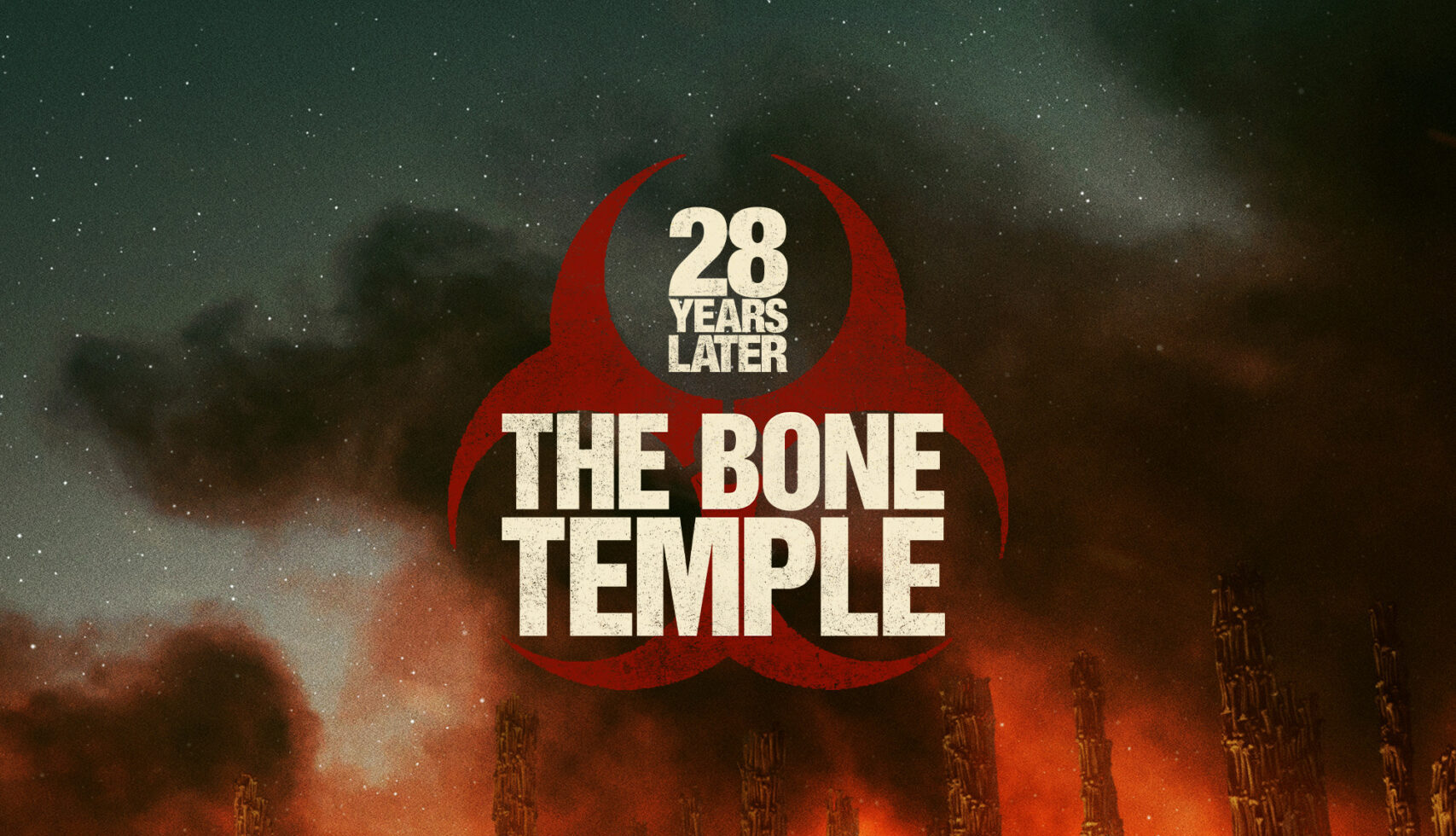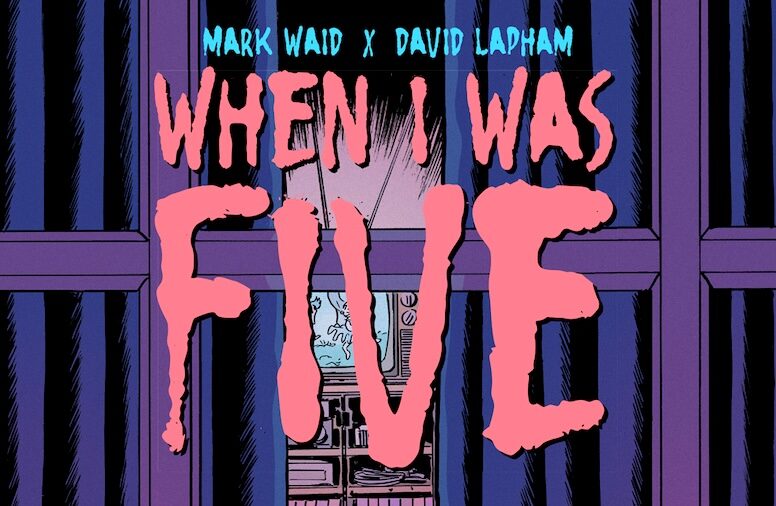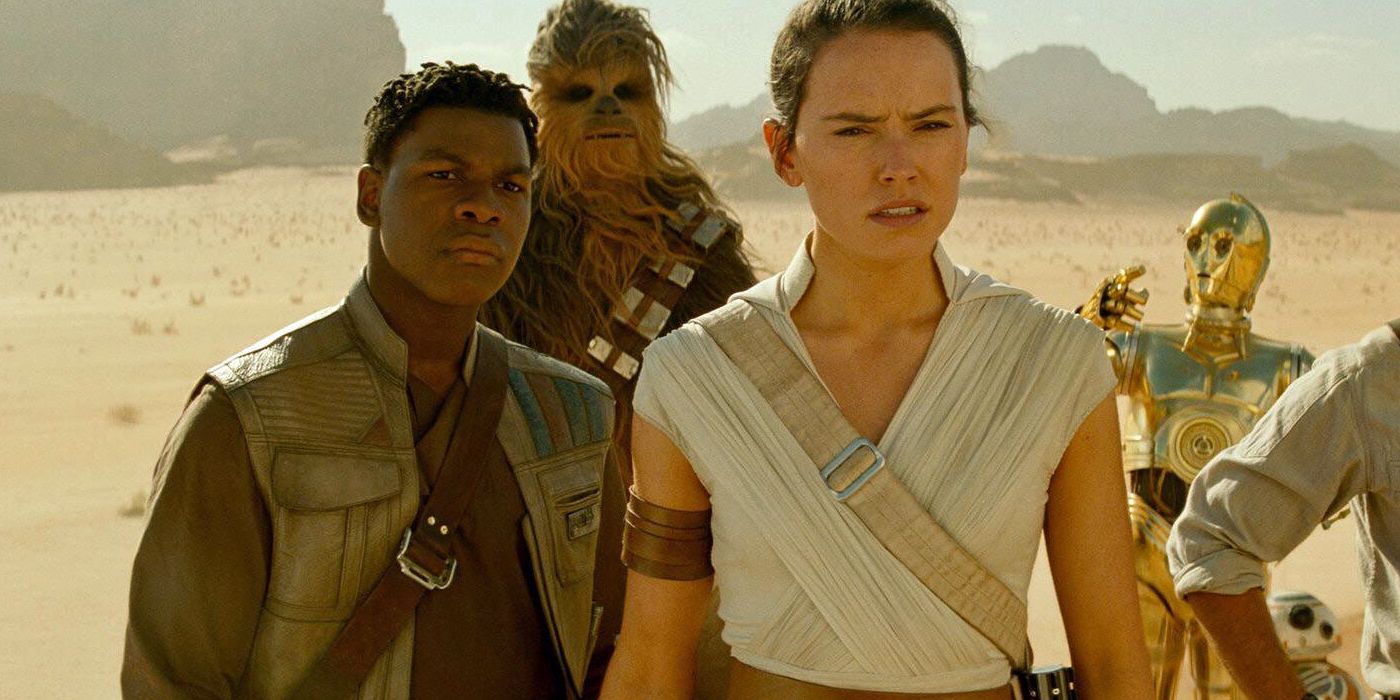
With Star Wars: The Rise of Skywalker now behind us, many fans are starting to settle into their opinion about the Sequel Trilogy as a whole. How did it compare to the originals, and did it manage to stick the landing after its middle entry was met with a lot of controversy? No matter what you thought, one criticism surfaced again and again from both sides: “Lucasfilm clearly didn’t have a plan.”
To many fans, that in and of itself is a damning accusation and is one of the main reasons why the movies failed. J.J. Abrams set up tons of questions — probably with a vague idea of how they could be answered — Rian Johnson answered them and continued things off in a different direction, and J.J. Abrams re-answered the questions, bringing the Sequel Trilogy back to a sort of safe status quo in the process.
But I couldn’t help but wonder…is “not having a plan” actually that big of a deal? I’m not convinced.
Fans Love The Idea Of Having A Plan
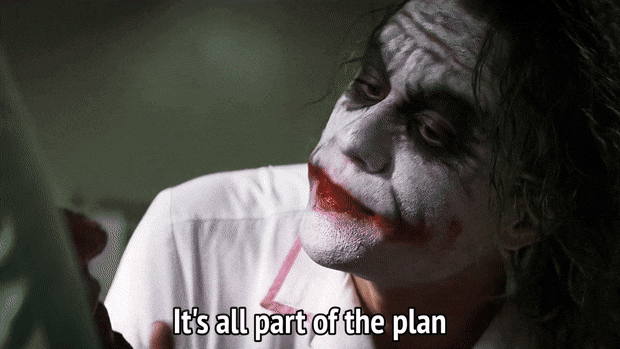
So, I’m not even talking about Star Wars here. How often are you following a comic series, a show, a film franchise, or whatever…and maybe some big thing happens. You find an interview with the creator who says that was a part of the plan from the start, and you’re filled with an inexplicable sense of warmth in your gut.
This storyteller is now, in your mind, a genius. He or she has had the confidence to lay the seeds and reap the benefits down the line when those seeds are paid off.
But let’s say the storyteller gives the same exact interview and says the opposite. That they dropped in some seeds in early episodes and didn’t fully know how they were going to pay it off, but ultimately found a way to do so over the course of the writing process. How do you feel about this scenario?
Nothing the storyteller says ultimately changes anything, but in the eyes of many fans, it lessens a project if core aspects of the story aren’t planned in advance. I’m not going to lie. I have felt the same way about this in many occasions, with long series like One Piece really being a testament of solid planning and foreshadowing.
But what if we open our eyes a bit? Let’s take a look at one franchise that was notorious for its lack of overall planning. And yet, it managed to be one of the most satisfying TV shows of all-time.
Breaking Bad’s Infamous Trunk Gun

I think most would agree that Breaking Bad is a series that managed to maintain a high level of quality throughout its run. Many of us also remember watching the first episode of the final season, which saw Walter White ready to enact some sort of plan involving a weapon in the trunk.
Showrunner Vince Gilligan famously admitted to having no idea what it was for or how it would be used.
“I figured, ‘Wow, 16 episodes. Oh man, we got all the time in the world. We’ll figure it out,’” Gilligan recalled to Uproxx back in 2018. “No idea what the hell Walt needed this thing for, which was so idiotic in hindsight. And I gotta tell you, the reason I remember it very distinctly is because working on the final four or five episodes of Breaking Bad, and my writers very astutely reminded me over and over again, whether I wanted to hear it or not, that we needed to work this machine gun thread into the storytelling.
“At a certain point,” he continued, “I so did not want to hear it, and furthermore, I would have these flights of fancy where I would say, ‘You know what? Let’s pretend the machine gun thing never happened.’ And they would say, ‘Okay. We can do that, but what’s the point?’ I said, ‘What would we do without the machine gun?’ And they would, again rightly say, ‘Well, it doesn’t really matter what would do, story-wise, without that because we gotta pay that thing off.’”
Ultimately, after some good old-fashioned elbow grease, they managed to make it work. Sure, in retrospect, Gilligan says it was a mistake to do it that way, but the reality is if he had a plan in place and stuck to it, it’s very possible it would have turned out differently and in a less satisfying way. As the folks who run those series in the New Mexico-set universe have proven, they like to write themselves into corners and write themselves out.
Better Call Saul Creator’s Philosophy
This past season of Better Call Saul, the writers of the show wrote themselves into another corner. However, it had become a part of the philosophy of the show in a way, as Peter Gould recalled to The New York Times.
“When I started on Breaking Bad, I was always worried about giving characters a problem I didn’t see a way out of. My philosophy has changed over the years. In the writer’s room, if we can’t figure out how this character’s going to deal with this problem, maybe the audience can’t either.”
One of the season’s big problems revolved around Huell, who assaulted a police officer and is arrested. So, how could they actually overcome this problem? What resulted was a satisfying fake letter-writing campaign that Jimmy spearheaded, making Huell’s case one the cop’s lawyers wouldn’t even want to touch.
Basically, in crafting the problem’s resolution, they did what all good writers do: they problem-solved. They wrote. They did their damn jobs of taking what came before and making it all work.
But these franchises aren’t the only ones who do this.
Sorry, But The Marvel Cinematic Universe Isn’t All Planned
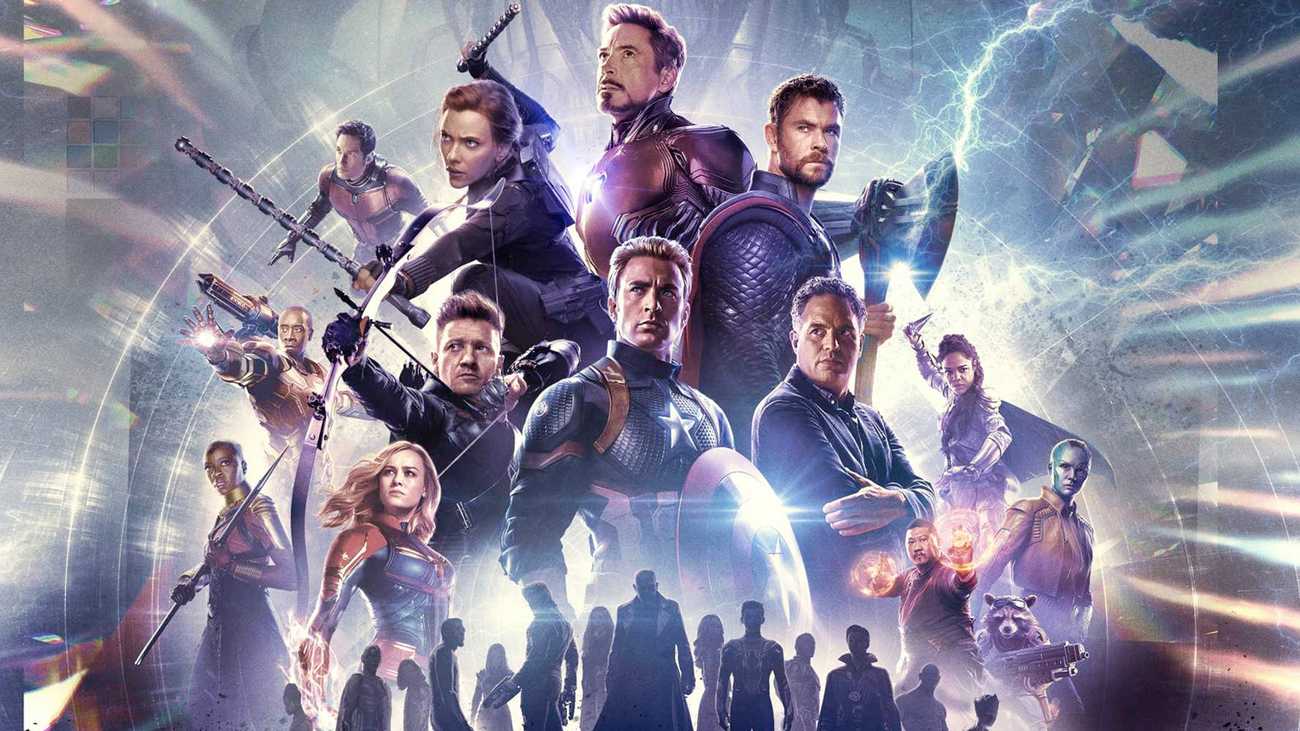
People point to the Marvel Cinematic Universe as the gold standard for serialized film storytelling. They seem to conveniently forget that the studio doesn’t really have a plan. Sure, they may have a slate of films, but that slate is ever-changing and dynamic. If you’ll recall, we had one movie removed and three added to Phase 3.
And you’ll also recall that one of the big franchises, Thor, pretty much chucked out everything that came before it out the window in favor of a funnier, more sci-fantasy-laden tone.
Marvel is really good at pivoting. They’re really good at adapting. They’re really good at making you think they have a plan. But you may say “Oh, but they have a whole slate of movies, so they definitely have a basic idea.”
I can then point to Star Wars. They announced three movies in a saga. That isn’t always indicative of a plan. And from what we hear out of Marvel almost weekly, they’re figuring it out as they go, making sure that the pieces ultimately fit into place with what came before.
So What?

“Okay, so what’s the point?” I hear you asking.
My point is that, as great as an idea as jumping into a trilogy of films with a plan is, that isn’t the end-all, be-all of storytelling. Just through these examples alone, it’s clear that writers in shows and franchises can pivot off of what came before without losing the impact of what came before. With this in mind, my criticism of the Star Wars Sequel Trilogy has shifted.
It is NOT a problem that they didn’t have a plan. In fact, for the first two movies, that was a strength. It allowed Lucasfilm to give their directors a true unique voice, and it gave the filmmakers an opportunity to take serious franchise risks. Personally, this is something I respected, as it would hopefully make each movie stronger as a standalone piece, in addition to being a chapter in a trilogy.
So, if I don’t think “not having a plan” is the problem, what is? The problem is that they didn’t prioritize the two words that improv’ers utilize on a daily basis: “Yes, and.”
This is a rule that states when entering an improv scene, you never go back on what came before. You “yes, and” it. You add to it, building on it, resulting in what is hopefully a superior end product.
In my opinion, Rian Johnson “yes, and”ed. He may have done so in a way many of you disagree with, but he did so nonetheless. J.J. Abrams…not so much. He “no, instead”ed instead, unraveling what came before, and leading fans to point to the wrong problem with the franchise.
In essence, Abrams and his writers didn’t do their damn jobs to honor what came before and create a satisfying ending that would please fans and critics alike.
Conclusion
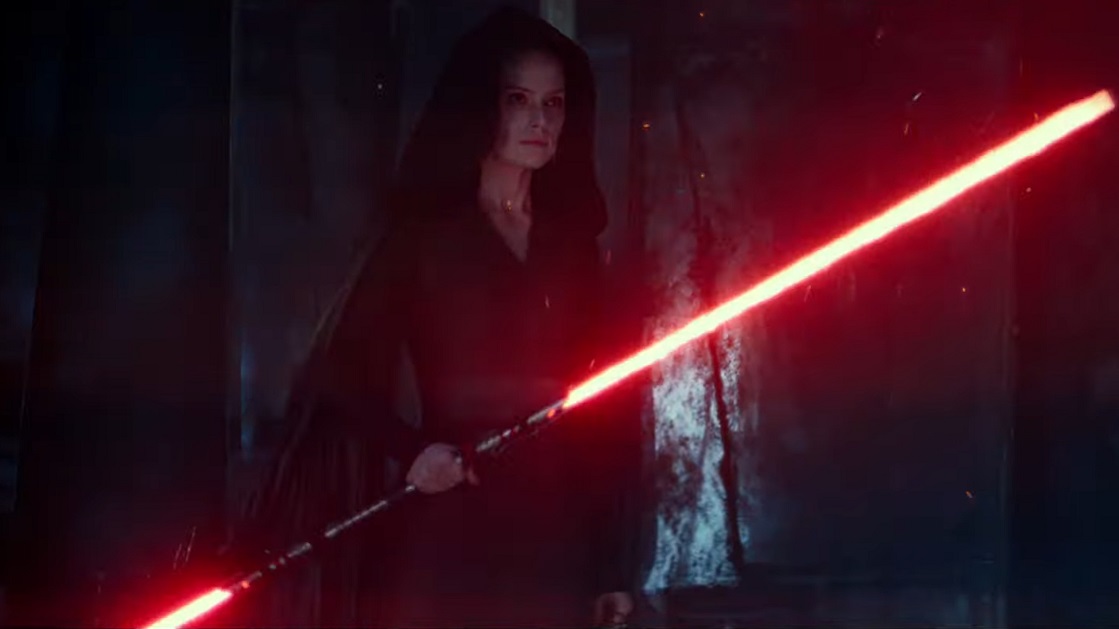
In my opinion, there is nothing wrong with having a plan. Having a plan can be great; having a plan can really build confidence with fans; having a plan works for some franchises.
But that isn’t the only way to tell stories. I feel like everyone pointing to “not having a plan” is misunderstanding the true core problem. The reality is, Lucasfilm could have made a satisfying conclusion to the trilogy without having a plan. They could have honored everything that came before it and made it feel as though it was part of some big vision. But they didn’t.
Instead, they catered to the fans on a whim, undoing what came before, undercutting their integrity and ruining the end product along the way. And, at the end of the day, I think we can all agree that it’s a damn shame.
Don’t forget to share this post on your Facebook wall and with your Twitter followers! Just hit the buttons on the top of this page.
—–
Have you checked out LRM Online’s official podcast feed yet The LRM Online Podcast Network, which includes our flagship podcast Los Fanboys, our premiere podcast Breaking Geek Radio: The Podcast, and our morning show LRMornings? Check it out by listening below. It’s also available on all your favorite podcast apps!
Subscribe on: Apple Podcasts | Spotify | SoundCloud | Stitcher | Google Play
SOURCE: Uproxx, New York Times
 FOR FANBOYS, BY FANBOYS
Have you checked out LRM Online’s official podcasts and videos on The Genreverse Podcast Network? Available on YouTube and all your favorite podcast apps, This multimedia empire includes The Daily CoG, Breaking Geek Radio: The Podcast, GeekScholars Movie News, Anime-Versal Review Podcast, and our Star Wars dedicated podcast The Cantina. Check it out by listening on all your favorite podcast apps, or watching on YouTube!
Subscribe on: Apple Podcasts | Spotify | SoundCloud | Stitcher | Google Play
FOR FANBOYS, BY FANBOYS
Have you checked out LRM Online’s official podcasts and videos on The Genreverse Podcast Network? Available on YouTube and all your favorite podcast apps, This multimedia empire includes The Daily CoG, Breaking Geek Radio: The Podcast, GeekScholars Movie News, Anime-Versal Review Podcast, and our Star Wars dedicated podcast The Cantina. Check it out by listening on all your favorite podcast apps, or watching on YouTube!
Subscribe on: Apple Podcasts | Spotify | SoundCloud | Stitcher | Google Play


